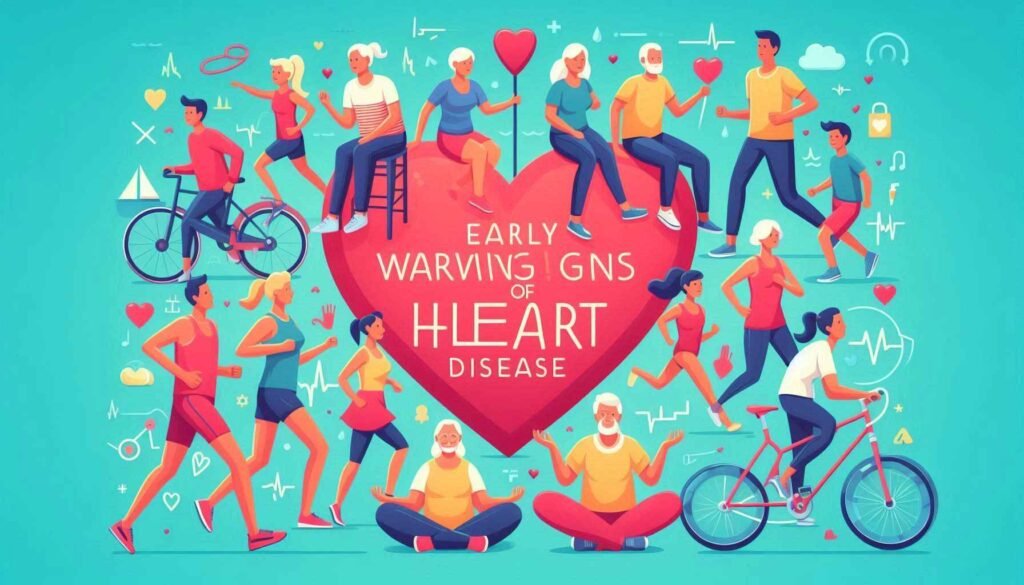
Advances in Alzheimer’s Research: Hope for the Future
Introduction
Alzheimer’s disease (AD), a progressive neurodegenerative disorder, affects millions worldwide and represents one of the most significant challenges in modern medicine. It leads to cognitive decline, memory loss, and functional impairments, drastically affecting individuals and their families. However, ongoing research provides hope for improved treatments, prevention strategies, and, potentially, a cure. This blog explores the latest advancements in Alzheimer’s research, shedding light on innovative therapies, diagnostic tools, and preventive measures.
Understanding Alzheimer’s Disease: A Brief Overview
What Causes Alzheimer’s Disease?
Alzheimer’s is primarily associated with the accumulation of two abnormal proteins in the brain: amyloid-beta plaques and tau tangles. These proteins disrupt neuronal communication, leading to the death of brain cells. While genetics play a significant role, environmental factors, lifestyle choices, and aging also contribute to its onset.
The Impact of Alzheimer’s
The condition not only affects individuals but places a significant emotional, financial, and societal burden on caregivers and healthcare systems. According to the World Alzheimer Report 2023, nearly 55 million people globally live with dementia, with Alzheimer’s comprising the majority of these cases. By 2050, this number is expected to triple.
Latest Developments in Alzheimer’s Research
1. Early Diagnosis and Biomarker Identification
One of the key challenges in Alzheimer’s treatment is early diagnosis. Researchers are making strides in identifying biomarkers that can detect the disease long before symptoms manifest.
- Blood Tests for Detection
Blood-based biomarkers such as plasma amyloid-beta and phosphorylated tau (p-tau) have emerged as promising tools for early detection. Studies published in Nature Medicine highlight their potential in predicting Alzheimer’s decades before cognitive symptoms appear. - Neuroimaging Techniques
Advanced imaging methods like PET scans and MRI are being refined to visualize amyloid plaques and tau tangles in living patients. These tools offer invaluable insights for researchers and clinicians.
2. The Role of Genetics in Alzheimer’s
Genetic studies are transforming our understanding of Alzheimer’s. The Apolipoprotein E (APOE) gene, especially its e4 variant, has been identified as a significant risk factor. However, research into other genes, such as TREM2 and PSEN1/2, is uncovering new therapeutic targets.
- CRISPR and Gene Editing
CRISPR technology is being explored to modify genetic risk factors and potentially prevent Alzheimer’s in individuals with a high genetic predisposition.
3. Innovative Therapies and Drug Development
- Anti-Amyloid Drugs
The FDA recently approved lecanemab, a monoclonal antibody that reduces amyloid-beta accumulation. While not a cure, it slows disease progression, offering hope for better disease management. - Tau Protein Targeting
Drugs aimed at stabilizing or clearing tau tangles are in clinical trials. These therapies could complement anti-amyloid treatments. - Neuroprotective Agents
Compounds that protect neurons from damage, such as BACE inhibitors, are being studied to delay the onset of cognitive decline.
4. Lifestyle Interventions and Preventive Research
- Dietary Impact
The Mediterranean-DASH Intervention for Neurodegenerative Delay (MIND) diet, rich in antioxidants and anti-inflammatory nutrients, has been linked to reduced Alzheimer’s risk. Studies in Frontiers in Aging Neuroscience confirm the neuroprotective benefits of such diets. - Exercise and Cognitive Health
Regular physical activity has been shown to enhance brain plasticity and reduce inflammation, delaying disease progression. Clinical trials, such as the FINGER Study, underscore the importance of lifestyle changes in Alzheimer’s prevention.
5. Exploring Novel Therapies
- Immunotherapy
Active and passive immunotherapies aim to harness the immune system to clear amyloid-beta and tau from the brain. Vaccines targeting these proteins are under development, with initial trials showing promise. - Stem Cell Therapy
Stem cells hold potential in regenerating damaged neurons and restoring brain function. Although still experimental, preclinical studies suggest they may offer a breakthrough in Alzheimer’s treatment.
6. Artificial Intelligence (AI) in Diagnosis and Treatment
Artificial intelligence (AI) is revolutionizing the landscape of Alzheimer’s research, offering new ways to diagnose and manage the disease. Machine learning algorithms can analyze complex datasets, including imaging scans, genetic information, and patient histories, to detect early signs of Alzheimer’s with unprecedented accuracy.
- AI-Driven Diagnostics
AI-powered tools are being developed to identify subtle patterns in brain scans that human analysis might overlook. For example, automated MRI analysis can predict structural changes in the brain associated with Alzheimer’s years before symptoms emerge. - Personalized Treatment Plans
AI also enables personalized treatment by analyzing an individual’s unique genetic and lifestyle factors. This tailored approach ensures therapies are more effective and reduces the likelihood of adverse effects.
7. Advances in Non-Pharmacological Interventions
- Cognitive Training and Brain Games
Research shows that cognitive training programs and brain games can improve memory, problem-solving skills, and overall cognitive function. Apps and digital platforms designed to stimulate the brain are being integrated into therapeutic plans to slow cognitive decline. - Music and Art Therapy
Therapeutic interventions like music and art therapy have shown remarkable benefits in managing Alzheimer’s symptoms. These approaches tap into preserved abilities and create opportunities for emotional expression, improving the quality of life for patients.
8. The Role of the Gut-Brain Axis
Emerging research on the gut-brain connection is uncovering how gut health influences Alzheimer’s progression. The gut microbiome, a complex ecosystem of microorganisms in the digestive tract, plays a significant role in brain health.
- Microbiome Research
Studies published in Journal of Alzheimer’s Disease reveal that imbalances in gut bacteria can increase inflammation and exacerbate Alzheimer’s symptoms. Researchers are exploring probiotics and dietary interventions to restore gut health and potentially slow disease progression. - The Role of Inflammation
Chronic inflammation, often linked to poor gut health, is a known contributor to neurodegenerative diseases. Anti-inflammatory diets and supplements are gaining traction as preventive measures.
Collaborative Efforts in Alzheimer’s Research
9. Global Research Initiatives
International collaborations are accelerating progress in Alzheimer’s research. Programs like the Global Alzheimer’s Platform (GAP) and the World Health Organization’s (WHO) Global Dementia Observatory are fostering knowledge sharing, data collection, and innovative clinical trials.
- Clinical Trial Diversity
Efforts are being made to ensure clinical trials include diverse populations, addressing disparities in Alzheimer’s research and ensuring treatments are effective across all demographics. - Public-Private Partnerships
Partnerships between governments, academic institutions, and pharmaceutical companies are funding groundbreaking studies and bringing new therapies to market faster.
10. Advocacy and Education
Public awareness campaigns and advocacy efforts are critical in combating the stigma surrounding Alzheimer’s and promoting early intervention. Organizations like the Alzheimer’s Association are empowering communities through education and resources.
- Training for Caregivers
Programs that equip caregivers with the skills and knowledge to manage Alzheimer’s patients are becoming increasingly important. These initiatives reduce caregiver burden and improve patient outcomes.
Future Directions in Alzheimer’s Research
11. Preventive Medicine and Lifestyle Medicine
Preventive approaches are becoming a central focus of Alzheimer’s research. Evidence suggests that lifestyle changes can significantly reduce the risk of developing the disease.
- Preventive Measures
Interventions like regular physical activity, a balanced diet, and stress management have shown promise in reducing Alzheimer’s risk. - Public Health Policies
Governments are introducing public health campaigns to educate populations about dementia prevention and promote healthier lifestyles.
12. Breakthroughs in Treatment Development
- Combination Therapies
Scientists are exploring the potential of combining different therapies, such as anti-amyloid drugs with tau-targeting treatments. This multi-faceted approach could address the disease more effectively. - Future of Drug Delivery
Innovations in drug delivery systems, such as nanotechnology, are enhancing the precision and efficacy of treatments. Nanoparticles can cross the blood-brain barrier, ensuring drugs reach affected areas of the brain.
The Role of Individuals in Advancing Alzheimer’s Research
13. Participating in Clinical Trials
One of the most impactful ways individuals can contribute to Alzheimer’s research is by participating in clinical trials. Clinical trials are essential for testing the safety and efficacy of new treatments, diagnostic tools, and preventive strategies.
- Benefits of Participation
Participants gain early access to experimental treatments and receive close medical supervision while contributing to groundbreaking research. These trials are not limited to individuals diagnosed with Alzheimer’s; healthy volunteers are often needed for control groups. - Overcoming Hesitancy
Despite the importance of clinical trials, many studies struggle to recruit participants. Education and awareness campaigns are crucial in encouraging diverse participation, particularly from underrepresented communities.
14. Supporting Alzheimer’s Advocacy Organizations
Advocacy organizations play a pivotal role in funding research, raising awareness, and supporting patients and caregivers.
- Volunteering and Donations
Individuals can support organizations like the Alzheimer’s Association by volunteering their time or making donations to fund research initiatives and community programs. - Raising Awareness
Sharing information about Alzheimer’s through social media, blogs, or community events helps reduce stigma and encourages early intervention and diagnosis.
The Importance of Patient-Centered Care
15. Enhancing Quality of Life for Patients
While research progresses, patient-centered care remains a cornerstone of Alzheimer’s management. Innovative care models and therapeutic approaches aim to improve the quality of life for those living with the disease.
- Personalized Care Plans
Tailored care plans that address individual needs, preferences, and cultural values can significantly enhance the well-being of Alzheimer’s patients. These plans often include a combination of medical treatments, lifestyle interventions, and social engagement activities. - Support for Daily Living
Technological tools, such as smart home devices and GPS trackers, are helping patients maintain independence while ensuring their safety. These tools reduce the burden on caregivers and provide peace of mind for families.
16. The Role of Caregivers
Caregivers are the unsung heroes in the battle against Alzheimer’s. Providing care for someone with Alzheimer’s is emotionally, physically, and financially challenging, making caregiver support a critical aspect of patient care.
- Training and Resources
Workshops and online resources equip caregivers with the knowledge and skills to manage behavioral symptoms, ensure proper nutrition, and handle daily challenges. - Mental Health Support for Caregivers
Caregiver burnout is a significant concern. Counseling services, support groups, and respite care programs are vital in maintaining caregiver health and well-being.
A Holistic Approach to Alzheimer’s Research and Care
17. Integrative Therapies
Incorporating holistic and integrative therapies into Alzheimer’s care is gaining recognition for its potential benefits.
- Nutritional Interventions
Nutritional supplements, such as omega-3 fatty acids, curcumin, and vitamin E, are being studied for their neuroprotective properties. Research published in Nutrients highlights the role of diet in slowing cognitive decline. - Meditation and Mindfulness
Practices like meditation and mindfulness have shown promise in reducing stress and improving cognitive function. These therapies complement traditional medical treatments and enhance emotional well-being.
18. Community-Based Programs
Community programs designed for Alzheimer’s patients and their families foster social interaction, reduce isolation, and promote cognitive engagement.
- Memory Cafés and Support Groups
Memory cafés provide a safe and supportive environment for patients and caregivers to connect and share experiences. - Public Education Campaigns
Programs aimed at educating the public about Alzheimer’s encourage early detection and reduce stigma, paving the way for more inclusive care.
Ethical Considerations in Alzheimer’s Research
19. Balancing Innovation with Ethics
As research advances, ethical considerations must remain at the forefront to ensure the rights and dignity of patients are upheld.
- Informed Consent
Obtaining informed consent from Alzheimer’s patients can be challenging due to cognitive impairments. Researchers are developing strategies to ensure patients understand the implications of participating in studies. - Privacy and Data Security
With the increasing use of AI and big data in research, safeguarding patient privacy and ensuring data security are critical priorities.
20. Access to Treatment
Ensuring equitable access to emerging treatments is an ongoing challenge. Advocacy efforts are crucial in making innovative therapies affordable and accessible to all, regardless of socioeconomic status.
Looking Ahead: The Road to a Cure
21. A Vision for the Future
The ultimate goal of Alzheimer’s research is to find a cure. While this remains a complex challenge, the progress made in understanding the disease’s mechanisms offers hope.
- Collaborative Efforts
Global collaborations among researchers, policymakers, and pharmaceutical companies are driving advancements and accelerating the path to a cure. - Promoting Awareness and Action
Public support and advocacy are vital in maintaining momentum in Alzheimer’s research. Increased funding and awareness can lead to breakthroughs that transform lives.
22. Empowering Future Generations
Educating future generations about Alzheimer’s is essential for fostering empathy, reducing stigma, and inspiring new researchers to join the fight against this devastating disease.
Conclusion: Building a Hopeful Future
The journey to understanding and combating Alzheimer’s disease is far from over, but the progress made thus far is a testament to human resilience and ingenuity. By combining cutting-edge science, compassionate care, and community support, we can pave the way for a brighter future for patients, caregivers, and society as a whole.
Together, through research, education, and advocacy, we can transform the narrative of Alzheimer’s from one of despair to one of hope and empowerment.



